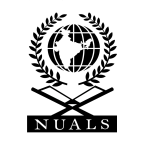After years of disillusionment, human rights are once again the means and vocabulary of economic, social and environmental justice efforts by international lawyers. They form the basis for strategic climate litigation across the world, and the judicial efforts to achieve peace and justice in Palestine.
While critics have rightly pointed to the many shortcomings of Western human rights paradigms, the current age of catastrophe has come with an urgency to re-investigate the possibilities of human rights. In this context, human rights epistemologies beyond the liberal paradigm have been recovered and offer a promising basis for a renewed effort to achieve structural change. Similarly, international lawyers associated with critical, or third world traditions increasingly turn towards traditional legal practise to pursue change.
This panel will present African epistemologies of human rights, and the critical turn towards legal institutions and reflect on the possibilities of both to achieve structural change.
Speakers
Siba N’Zatioula Grovogui is a professor of international relations and law at Cornell University. He is the author of ‘Sovereigns Quasi-Sovereigns and Africans: Race and Self-Determination in International Law’, which is one of the foundational works of the Third World Tradition of International Law (TWAIL). In his forthcoming monograph ‘Otherwise Human: Human and Humanitarian Rights Traditions’ he explores modern idioms and languages that give expression to the ‘human’ as an actualization of moral choices and ethical commitments to others.
Godwin Dzah is an assistant professor at the Faculty of Law, University of Alberta. His book ‘Sustainable Development, International Law, and a Turn to African Legal Cosmologies’ was just published with Cambridge University Press. He has published widely including in the African Journal of International and Comparative Law, TWAIL Review, and the African Human Rights Law Journal.
Lys Kulamadayil is a Swiss National Science Foundation Ambizione Fellow at the Graduate Institute of International and Development Studies, where she leads the project Law by Colour Code: Locating Race and Racism in International Law. She is also the author of ‘The Pathology of Plenty: Natural Resources in International Law’ and has published widely including in the London Review of International Law, Transnational Legal Theory, and the Leiden Journal of International Law. She also consults the United Nations mandate on the right to food.
This public panel is organised in collaboration with the National University for Advanced Legal Studies in Kochi where it also takes place. It is part of the conference ‘Social Hierarchies in Catastrophic Times’.
Image by Tanzeel Ahmad on Pixabay




